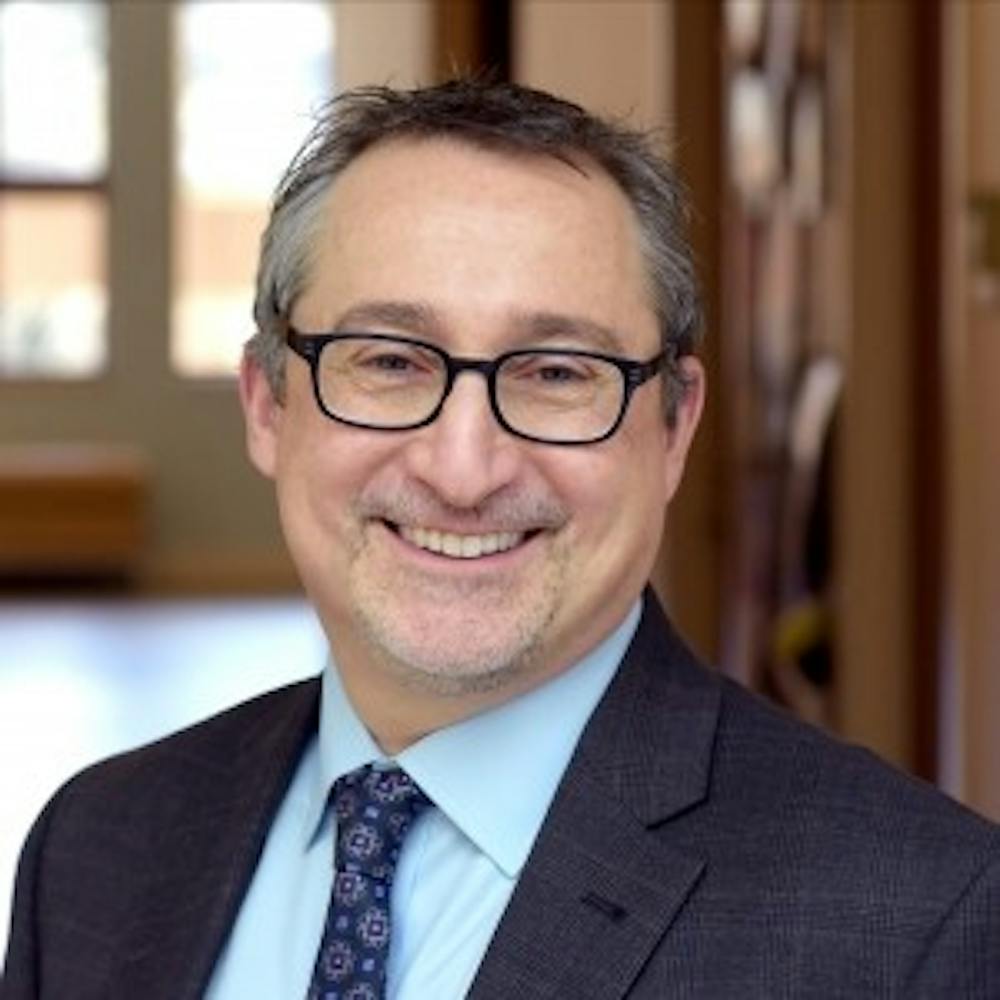Among the numerous accomplished professors at the University, there is a certain professor with a particular passion for politics. Associate professor and associate chair for the Department of Politics, Paul Freedman is someone who has extensively explored the connections between politics and the media through his contributions to various journals and his research.
Freedman first became intrigued by the relationship between media and politics when he considered how public opinion is formed.
“If you’re interested in where people’s issue positions come from, where their ideological orientation comes from [and] how it’s shaped — then pretty quickly you find yourself paying attention to media messages and what sources of information and views people are exposed [to],” Freedman said.
The professor drew an analogy between media consumption and diets.
“You consume news and information everyday — think about where it comes from,” Freedman said. “How did it get to you? Is it nutritious? Is it empty calories?”
Freedman’s view on the media and politics has pushed his students to view the media from a different perspective in his class, “Mass Media and American Politics.”
“I think [Freedman’s class is] a class most people should take,” fourth-year College student Brent Reutter said. “It’s a really good insight into the news media and how news is collected and sold to us that lots of people don’t know about.”
Freedman continues to find the study of the media and politics enjoyable due to the constant changes occurring in the political world.
“Every semester, someone from outside the University will say to me, ‘Oh, it must be an exciting time to teach media and politics,’” Freedman said. “But the truth is, that’s true every semester … Something is always happening that makes for a really fascinating case study or fascinating store of illustrative examples.”
Freedman’s dedication and energy for media and politics is evident through his lectures.
“He’s a good teacher; [he has] great energy,” Daniel Davis, one of Freedman’s teaching assistants, said. “He’s very interested in media, and I think it comes across a lot in lecture.”
Due to the current relationship between media and politics — specifically, President Donald Trump’s communication with the public through Twitter — Freedman has shifted the focus of his own work. Freedman previously focused on political media through television, but has now begun to delve deeper into the role of Twitter and American politics.
“It is fascinating to teach about media and politics while we have a president who really is using media in new ways,” Freedman said.
In addition to his job as a professor, Freedman has been an election analyst for ABC News since 2000. The professor works with a group of other analysts to make election projections.
As an election analyst, Freedman looks at data from sources like exit polls and the Associated Press. After analyzing this data, Freedman said he and his team must be sufficiently confident to project that a particular candidate has won a particular race. During Freedman’s first year as an analyst — which was during the 2000 Presidential Election — analyzing the data was especially difficult, he said.
“Basically, all networks had said that Al Gore was the president, and then they uncalled that,” Freedman said. “And then they said George Bush was the president — and then they uncalled that … It turned out that we needed to wait 34 days to figure out who the next president was.”
Despite having to work under a tight schedule during election nights, Freedman said the job is exciting.
“It’s not like anything else you do as a professor,” Freedman said. “I’m really fortunate to have been part of this group, and it’s a really great group of people to work with.”
Outside of studying the intersection of politics and media, Freedman also ponders the relationship between politics and food. This interest in food and politics has led him to also a teach a course in that field, titled “Politics of Food.” In this course, Freedman has students explore how food is political in aspects that are not widely seen by the public.
“Everything from climate change to water quality to … the accessibility of food, these are all political questions,” Freedman said. “Fundamentally political questions.”
In addition to Freedman’s extensive work in his field, he is known to have an amiable relationship with his students.
“[Freedman] is one of the, if not the most, approachable professors I’ve seen,” Reutter said. “He changes [his office hours] every week basically to make sure people have a time to meet with him.”
This busy schedule means that Freedman’s doesn’t have much free time. However, he said his devotion for his job and work fuel him through his everyday life.
“There is no down time. This is all I do,” Freedman said. “And if there were a down time, I wouldn’t tell you about it. [But] I’m not pleading the fifth … There’s so much fun stuff that goes on during the up time.”







